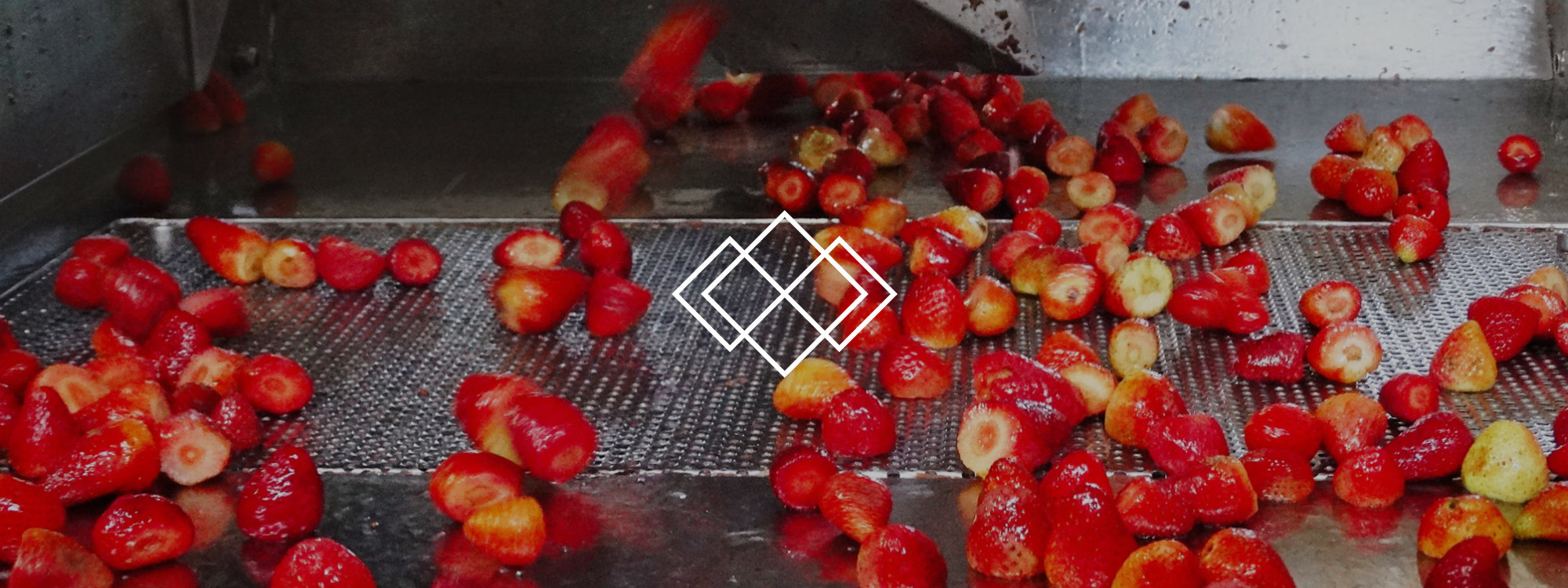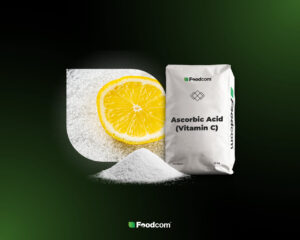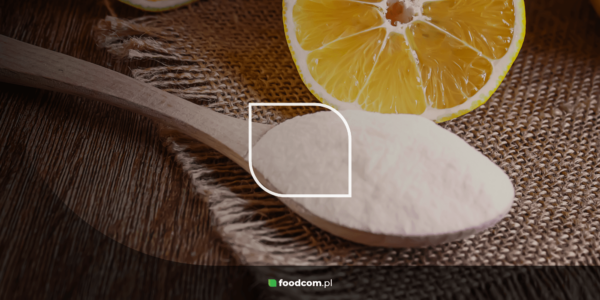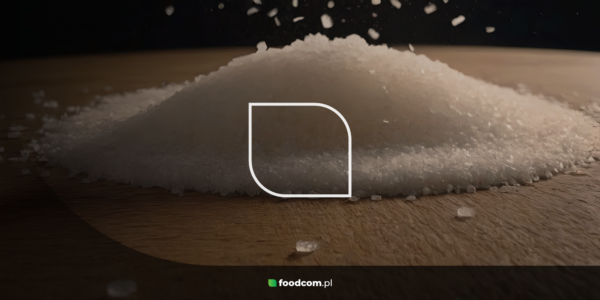- Ascorbic Acid, also known as Vitamin C, is a water-soluble chemical compound.
- It occurs naturally in fresh fruits and vegetables and is industrially extracted from Glucose.
- Ascorbic Acid has a number of beneficial properties that make it used in the food, feed, pharmaceutical and cosmetic industries.
- In food production, it is an antioxidant and also affects the color and taste of products.
Ascorbic Acid, also known as Vitamin C, is an organic chemical compound that belongs to the group of water-soluble Vitamins. It has many names and is also called ascorbic acid and L-ascorbic acid. Ascorbic Acid is an important substance for the proper functioning of the body, as it is responsible for many metabolic processes. That is why it is used in the pharmaceutical and cosmetic industries. It also has functional properties that are used in the food industry – it is an effective antioxidant. Where exactly is ascorbic acid used in food? Read our article!
Ascorbic Acid properties
Ascorbic Acid occurs in the form of white crystals and has an acidic taste. It is found in nature mainly in fruits such as lemon, orange, grapefruit, kiwi, acerola and black currants, and in vegetables such as peppers, Brussels sprouts, cabbage and broccoli. On an industrial scale, it is obtained from Glucose by the Reichstein method.
Ascorbic Acid has a number of beneficial nutritional and functional properties that give it numerous applications in various industries. These include:
- antioxidant activity – helps neutralize free radicals and protects the body from oxidative stress, which is important in preventing cell damage,
- immune system support – Ascorbic Acid supports the production of white blood cells, which protect the body from infections,
- Collagen synthesis – Ascorbic Acid is essential for the synthesis of Collagen, a structural protein, and therefore plays a key role in skin health, wound healing and maintaining the elasticity of blood vessels,
- support of iron absorption – Vitamin C increases the absorption of iron from plant foods,
- preservative effect – since Ascorbic Acid is an antioxidant, in the food industry it protects food from oxidation and spoilage, thus prolonging the shelf life of products,
- brightening effect – Vitamin C has a significant effect on brightening the skin and evening out skin tone, acting as an effective depigmentant as it reduces excessive melanin production.
Ascorbic Acid uses
Ascorbic Acid, is widely used in various industries due to its numerous benefits. In the food industry, Vitamin C is used as a food additive E300. Its main purpose is to increase food shelf life and prevent nutrient oxidation.
Ascorbic Acid is also used in Animal Nutrition. It is a nutritional additive and acts as a natural antioxidant, protecting animal organisms from the harmful effects of free radicals. It can help maintain the overall health of animals and improve their digestion. As a functional ingredient, it helps protect nutrients from oxidation during feed storage.
Because of its many health-promoting properties, Ascorbic Acid is also very popular in the pharmaceutical industry. It is often used as an ingredient in dietary supplements, because it supports the body’s function, including the immune system. It is also used in some antiviral medications. Vitamin C can also support the healing process of wounds and skin injuries.
In the cosmetics industry, Ascorbic Acid is used in anti-wrinkle products because it supports Collagen synthesis. It is also an ingredient in cosmetics that lighten the skin and even out skin tone. Due to its exfoliating effect, it is also used in the manufacture of products for acne-prone skin.
Ascorbic acid in food production
Vitamin C is particularly popular in the food industry. Its antioxidant properties and health benefits make it a valued additive in many foods. It can be used in the production of bread, cold cuts, meats, jams, jellies, sauces and beverages. The following describes the uses of food-grade vitamin C.
Food preservation
Ascorbic Acid is widely used in the food industry as a preservative. It acts as an antioxidant that prevents the oxidation of fats and oils in foods. As a result, foods retain their freshness and flavor longer. In addition, the low pH of Ascorbic Acid can inhibit the growth of microorganisms, which also has an effect on extending the shelf life of products.
Ascorbic Acid is added to jams and jellies to prevent oxidation of fruits and extend the shelf life of the product, or in the meat industry to prevent oxidation of fats in meat products such as cold cuts.
Color improvement
Ascorbic Acid is used to improve color. This is especially evident in fruits and vegetables, where the addition of vitamin C helps to maintain an attractive appearance – the products do not turn brown, and discoloration is delayed.
Effect on the taste
Ascorbic Acid inherently has a sour taste that it can impart to foods. This is desirable in many products, such as fruit juices and pickles.
Choose Foodcom!
Our great team of Sales Support will help our Traders conduct the contract and business deals in a smooth and efficient way to ensure the best quality service to all our Business Partners. Our logistics team will take care of transportation and the financial department will be responsible for all matters connected with the financial part of the deal. Do not hesitate! Contact us.










